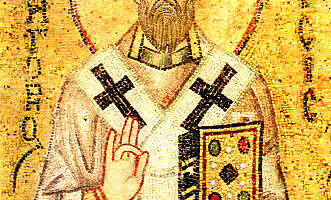“We have created gods to justify nature’s phenomenon without scientific explanations. If we do not believe anymore in pagan Gods (like Zeus and Poseidon), why still believe in God?” Those are questions and criticisms regularly addressed against the belief in God. How to answer them?
Initially, one must say that yes, our ancestors created gods to explain nature and the unknown. But not only for those reasons; they did it mainly because of factors common to people of all eras (some listed by several intellectuals, like the American journalist Ross Douthat – in an interview for the “Real Time” show) and the British philosopher Richard Swinburne): the feeling that we live in a mysteriously organized universe; the perception of some kind of moral law inherent in human nature; a sense of awe before the beauty of the world; a sort of gratitude for the mere fact that we exist; among others. Furthermore, the pagans of the past, just like current religious people, had mystical and spiritual experiences; therefore, they elaborated systems and stories to try to explain them and ended up creating gods with our defects and virtues, as greater versions of the human being himself.
After that answer, another question arises: if we stopped believing in those gods, why would the only God be any different? Should not scientific advances be enough to prove its inexistence?
The members of Abrahamic religions (Jews, Christians and Muslims), despite their clear theological differences, believe that a time arose in which the only God showed his “face” to humanity. This God is not a mere improved version of a man; but as better explained by the American Priest and Theologian Robert Barron (based on Thomas Aquinas): (..)God is not in any genus, including that most generic genus of all, namely being. He is not one thing or individual — however supreme — among many. Rather, God is, in Aquinas’s pithy Latin phrase, esse ipsum subsistens, the sheer act of being itself”.
Modern science gives solid arguments and evidence to support the inexistence of those pagan gods, those beings that also lived in the natural world, but not of the God the religions of Prophet Abraham. To that extent, Father Barron continues:
Having explored the depths of the oceans and the tops of the mountains and even the skies that surround the planet, we have not encountered any of these supreme beings. Furthermore, the myriad natural causes, uncovered by physics, chemistry, biology, etc. are more than sufficient to explain any of the phenomena within the natural realm. But the physical sciences, no matter how advanced they might become, can never eliminate God, for God is not a being within the natural order. Instead, he is the reason why there is that nexus of conditioned causes that we call nature — at all.
This God is not some poor artifice used to enlighten the unknown or to fill the gaps of science. This position is not some tactic of the faithful to escape and survive before scientific advances. By the way, the first theologians of the Church (like Augustine of Hippo) warned not to use the Bible to understand natural phenomena.
Unfortunately, several Christians fear science and social change and use God to reject scientific theories (like evolution) and to promote fundamentalism in politics. Those believers, despite good faith, relegate the Creator as a kind of reactionary force and as an easy way to fill so called scientific gaps. To them, the late German Theologian Dietrich Bonhoeffer, paraphrased by then Cardinal Joseph Ratzinger (Pope Emeritus Benedict XVI) in his book “Introduction to Christianity”, had a great advice:
(…) time to finish with a God whom we insert to fill the gap at the limit of our own powers, whom we call up when we ourselves are at the end of our tether. We ought to find God, he thought, not, so to speak, in our moments of need and failure, but amid the fullness of earthly life; only in this way could it be shown that God is not an escape, constructed by necessity, which becomes more and more superfluous as the limits of our powers expand.
Therefore, let us believers follow the words of Bonfoeffer and speak of God “not at the boundaries but in the center, not in weakness but in strength, thus not in death and guilt but in human life and human goodness.”
Sources:
BARRON, ROBERT. Atheists don’t get God. Available in: http://www.realclearreligion.org/articles/2013/10/31/atheists_dont_get_god.html. Accessed on may 22 2015.
RATZINGER, JOSEPH. Introduction to Christianity. 2nd edition. San Francisco: Ignatius Press, 2000;
SWINBURNE, RICHARD. Is there a God? Oxford University Press, 2010.



